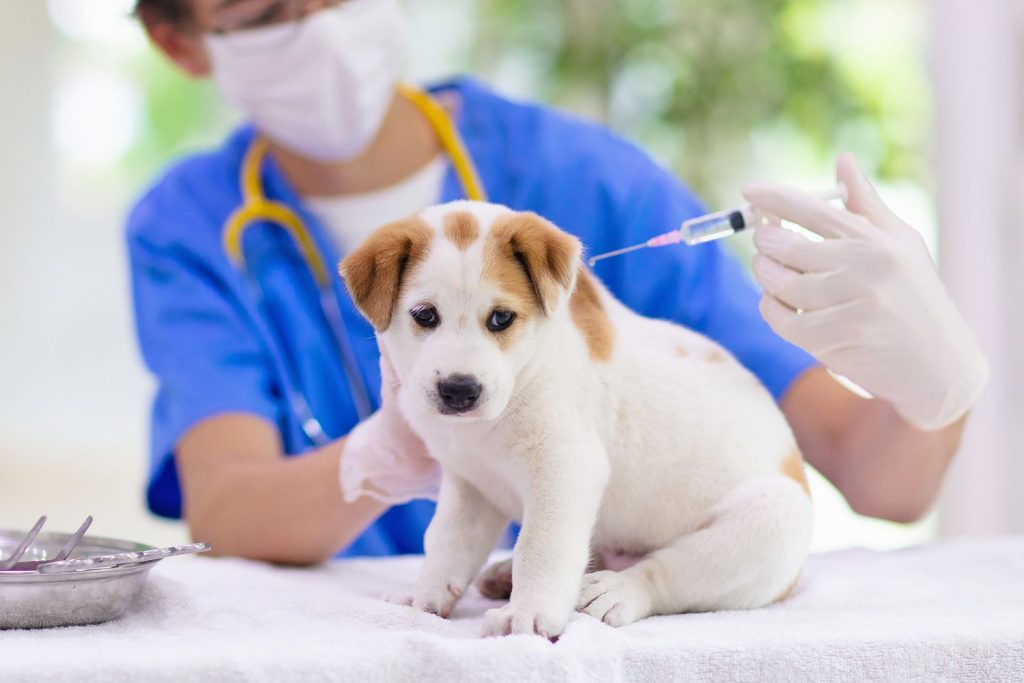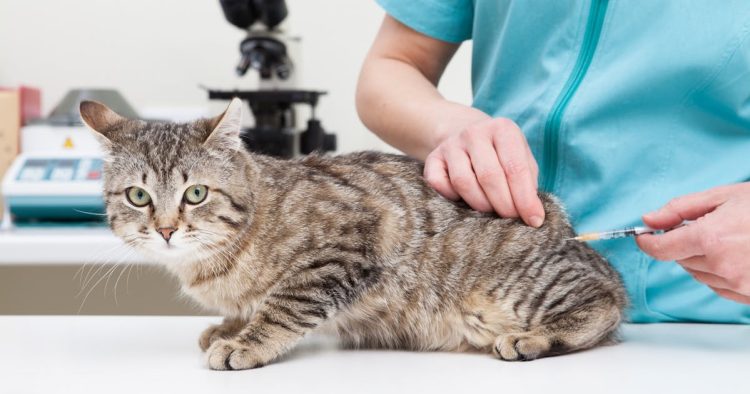Vaccination is an essential part of ensuring your pet’s health and well-being. It helps prevent various serious diseases and protects not only your pet but also the community of pets around them. However, like any medical procedure, vaccinations can come with some side effects or reactions that pet owners need to be aware of. Knowing what to expect after your pet receives a vaccine and how to care for them can help ensure that they recover well and stay safe. Here’s what you need to know after your pet gets vaccinated:
1. Watch for Common Side Effects
Most pets experience only mild side effects after vaccinations, and these usually go away on their own within a few hours or days. However, it’s essential to keep an eye on your pet and monitor them for any unusual behaviors.
Common Side Effects Include:
- Lethargy or Fatigue: It’s common for pets to feel tired or slightly lethargic after a vaccination. This is usually temporary and should resolve within 24-48 hours. Allow your pet to rest but encourage them to drink water and eat if possible.
- Mild Fever: Your pet might develop a slight fever after getting vaccinated. A mild fever is generally not a cause for concern, but if it lasts more than 24 hours or is unusually high, it’s best to contact your vet.
- Swelling or Redness at the Injection Site: A small bump or swelling at the site of the injection is typical and should subside in a few hours to a day. However, if the swelling persists, gets larger, or becomes painful, consult your veterinarian.
- Reduced Appetite: Some pets may lose their appetite for a day or two after vaccination. If your pet refuses to eat for more than 48 hours, contact your vet.
- Diarrhea or Vomiting: Though less common, some pets may experience mild gastrointestinal upset after vaccination. This should resolve on its own. If symptoms persist or worsen, contact the vet.
2. Limit Physical Activity and Excitement
After a vaccination, it’s important to avoid intense physical activity or excitement for at least 24 hours. This gives your pet’s immune system time to respond to the vaccine and ensures that they don’t overexert themselves while they might be feeling a bit off due to the mild side effects.
- Avoid Strenuous Exercise: While your pet may feel a bit sluggish after the vaccine, they should not engage in vigorous play or long walks for the first 24 hours. Give them plenty of rest and ensure that they have a comfortable space to recover.
- Keep Them Calm: If your pet is typically very active or excitable, try to keep them calm and reduce the stress around them after the vaccination. This can help minimize the chances of more severe side effects.
3. Ensure They Stay Hydrated and Eat Properly
Some pets may experience a temporary loss of appetite or a decrease in their drinking habits after a vaccine. It’s important to monitor their hydration levels and encourage them to drink plenty of water. You can try offering some of their favorite wet food or a little bit of broth to encourage them to eat.
- Offer Small Meals: If your pet is hesitant to eat, try offering smaller meals throughout the day instead of one large portion. Keep their food at room temperature to make it more appealing.
- Hydration is Key: Ensure they have access to fresh water at all times. You may also offer ice cubes or ice chips, which can be more appealing to some pets.
4. Monitor for Serious Reactions
While serious reactions to vaccines are rare, they can happen. It’s important to keep an eye out for any signs that may indicate your pet is having an adverse reaction to the vaccine. Some of these signs include:
Signs of an Allergic Reaction:
- Swelling of the Face, Eyes, or Lips: This is one of the most common signs of an allergic reaction to a vaccine. Swelling can be localized or widespread, and it can occur within a few hours after vaccination.
- Difficulty Breathing: Labored breathing or wheezing is a severe reaction that requires immediate veterinary attention.
- Hives or Rash: If you notice hives, a rash, or raised bumps on your pet’s skin, they could be experiencing an allergic reaction.
- Vomiting or Diarrhea: Severe gastrointestinal symptoms like vomiting and diarrhea, especially if accompanied by other signs of distress, should be evaluated by a veterinarian.
- Collapse or Weakness: If your pet appears weak, faint, or collapses after a vaccination, this is an emergency, and you should contact your vet immediately.
If any of these symptoms appear within a few hours after vaccination, it’s important to seek veterinary attention immediately.

5. Follow Post-Vaccine Instructions from the Veterinarian
Your veterinarian may provide specific instructions or aftercare advice based on the type of vaccine your pet has received and your pet’s individual health needs. Some additional things to consider are:
- Keep Track of Follow-Up Appointments: Many pets will require a series of vaccinations, especially puppies and kittens. Make sure to follow up with your vet as scheduled for booster shots and other necessary vaccines.
- Note Any Changes: Keep a diary of any changes you observe in your pet’s behavior, appetite, or health following vaccination. This can be helpful for your vet if any complications arise later.
- Discuss Future Vaccinations: Ask your vet about when your pet will need their next vaccination and whether any additional boosters or specialized vaccines (e.g., for travel) are required.
6. Understand Vaccine Schedules
Vaccines often come in a series, especially for young pets like puppies and kittens. Be sure to keep track of when your pet is due for their next vaccination and discuss any questions with your vet about the proper timing for future doses.
- Puppy and Kitten Vaccination Schedule: Typically, puppies and kittens start their vaccinations at around 6 to 8 weeks of age, with boosters given every 3 to 4 weeks until they are around 16 weeks old. After that, they will need annual booster shots for many of the core vaccines.
- Adult Pet Vaccinations: For adult pets, many vaccines need to be renewed on an annual or triennial basis, depending on the vaccine and your pet’s health needs. Your veterinarian will advise you on the appropriate schedule for your pet.
- Rabies Vaccine: This vaccine is required by law in many areas, and your veterinarian will keep track of when the next dose is needed.
7. Be Aware of Special Considerations
Some pets may have specific health considerations that make them more susceptible to reactions from vaccines, such as older pets, pets with compromised immune systems, or pets with a history of allergic reactions. If your pet falls into any of these categories, be sure to discuss these concerns with your vet before getting the vaccine.
- Older Pets: Senior pets may have weaker immune systems, so it’s important to consult with your vet about the best vaccination schedule and whether any adjustments are needed based on your pet’s age.
- Pets with Chronic Health Conditions: Pets with conditions like diabetes, heart disease, or cancer may need special considerations regarding vaccinations. Your veterinarian may adjust the type of vaccine or the vaccination schedule based on your pet’s overall health.
8. Keep Your Pet Comfortable
Vaccination is important, but the day following the procedure should be a relaxing one for your pet. Make sure they have a quiet, comfortable space to rest and recuperate. Keep them away from loud noises, large crowds, or stressful situations to allow their immune system to respond effectively to the vaccine.
Conclusion
Vaccinations are an essential part of your pet’s health care routine and can protect them from a wide variety of serious illnesses. After your pet is vaccinated, most side effects are mild and temporary. However, by being vigilant and watching for potential signs of an allergic reaction or severe side effects, you can help ensure that your pet recovers comfortably. Always follow the advice of your veterinarian and don’t hesitate to contact them if you have any concerns or if your pet shows any unusual symptoms after vaccination. With proper care, your pet will be on the path to a long, healthy life, protected against preventable diseases.























































